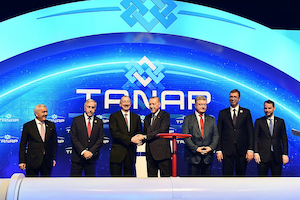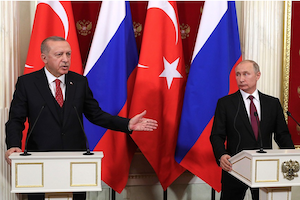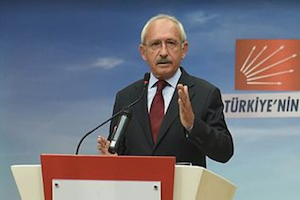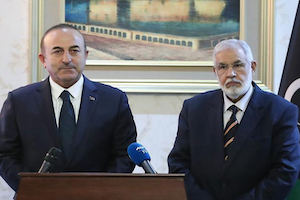Turkey's Natural Gas Strategy Faces Obstacles
By Natalia Konarzewska
March 23, 2020
On January 8, 2020, Turkey's President Recep Tayyip Erdoğan and his Russian counterpart Vladimir Putin attended the opening ceremony of TurkStream, the natural gas pipeline that is envisaged to carry Russian gas to Turkey and then to Southeastern Europe. A month earlier, Erdoğan and Azerbaijan's President İlham Aliyev inaugurated another gas project that Turkey participates in, the Trans Anatolian Gas Pipeline (TANAP) and which will deliver Azerbaijani gas to Turkey and to southern Europe. Yet TurkStream and TANAP offer mixed prospects for advancing Turkey's strategy to become an energy transit state for Europe because of limitations of capacity and unclear or limited perspectives of expansion. Even though both pipelines are seen as cornerstones of Turkey's gas strategy, they are in fact being brought to completion at a time when Ankara tries to reduce its dependency on pipeline gas and seeks to benefit from the booming liquified natural gas market.

The Meaning and End of Turkey-Russia Cooperation in Syria
By Micha’el Tanchum
February 20, 2020
The Turkey-Russia relationship is in the midst of a major reset. The outbreak of hostilities in Syria's Idlib province has left thirteen Turkish soldiers dead and seven Turkish military posts under siege by Russian-backed Syrian government forces. Prior policy convergences between Turkey and Russia had raised speculation about the prospect of a Turkish-Russian strategic partnership dominating the security architecture on Europe's southern borders. However, Ankara seems to have overplayed its hand in what is fundamentally a transactional relationship with Moscow. A total rupture in Turkish-Russian cooperation is unlikely, even in the event of a Turkish counter-offensive. However, Russia's reduced cooperation with Turkey will likely result in Russia's further development of more robust strategic partnerships with Turkey's rivals – the United Arab Emirates and Saudi Arabia.

Feeding the Beast: "Kanal Istanbul" and Crony Capitalism in Turkey
By Barış Soydan
February 19, 2020
Massive infrastructure projects have become the bedrock of the political economy of Turkey. With the projected building of a canal that would devastate Istanbul’s ecology, and which will vastly increase the budget deficit, the destructive consequences of the collusion of state power and business interests in Turkey risks reaching unprecedented levels. While Turkish crony capitalism requires new mega projects to survive, the Turkish political regime must keep feeding its cronies in order to retain its grip on the country. But the ultimate project of Turkish crony capitalism could spell the end of Istanbul.

Rich and Poor: What Will Turkey's New Polarization Bring?
By Halil Karaveli
January 30, 2020
Turkey is facing a new polarization between rich and poor. Inequalities in income and wealth have grown dramatically. As developments in other countries in recent years have shown, growing inequality destabilizes the body politic and invites destructive political forces. In Turkey itself, class divisions have historically benefited authoritarian, conservative populists. Turkish democracy needs a resurrected center-left. Kemal Kılıçdaroğlu, the leader of the officially social democrat Republican People’s Party (CHP), has committed his party to the task of rescuing democracy in Turkey. To succeed, he will have to reconsider his belief that the left has become irrelevant.

Turkey Enters Libyan Escalation Spiral at Great Risk
By Micha’el Tanchum
December 30, 2019
Turkey upended the Eastern Mediterranean's strategic equation with its late November 2019 signing of maritime boundary and military cooperation agreements with the Tripoli-based Government of National Accord in war-divided Libya. By defining maritime borders with the internationally recognized administration in Tripoli, Ankara ostensibly has broken its regional isolation and gained greater legal standing to challenge the boundaries Greece established with Cyprus and Egypt upon which the current arrangements for Eastern Mediterranean natural gas development depend. While previously compartmentalized, Turkey's formalization of its commitment to Tripoli has interlinked an already tense maritime stand-off in the Eastern Mediterranean to a new escalation spiral in the Libyan Civil War in which Turkey's rivals possess escalation dominance over Turkey.



